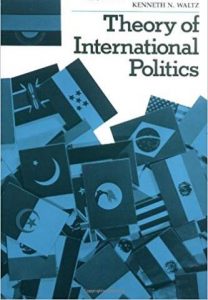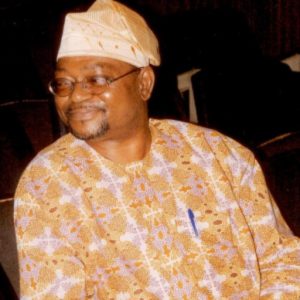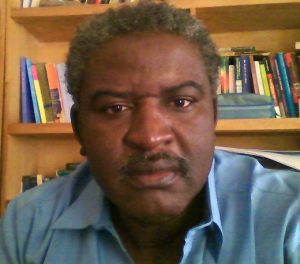There is this famous story of the school teacher who was used to telling his students seeking a deeper meaning of the word velocity that the only way to get that is to go and stand on the track of a racing car. Similarly, the best way to understand the notion of dissident scholars, at least in the social sciences, is to read Richard Ashley and R. B. J. Walker’s 1990 essay “Introduction: Speaking the Language of Exile: Dissident Thought in International Studies”. It shares a lot with Ken Booth’s “Security as Emancipation” delivered about the same time.

Prof Ashley
They all speak to the post Cold War attitude of intellectuals turning on themselves, questioning what the hell is this thing called knowledge, how it is being produced, by whom, from where and how. And then coming up with new assumption, categories and methods that completely turned, at least the social sciences, upside down. They ruptured established procedures or protocols by which knowledge was produced, establishing new categories and protocols, widening and deepening the stuff to be known and how they might be known.
The establishment in disciplines such as Political and International Studies were rattled. Princeton University’s Robert Keohane used the occasion of his 1988 presidential address to the International Studies Association to read the riot act to these new guys. He gave an address which has now been published as “International Institutions: Two Approaches” and where he dismissed the new voices – constructivists, feminists, poststructuralists, etc, challenging them to go beyond being skilful in critical arguments to producing a research programme that others could use.
But it was too late. It might have helped if he made the speech in 1985, a year after Richard Ashley wrecked the most established theorist in International Relations, Kenneth Waltz whose Theory of International Politics had become the holy book of the discipline. Of course, without that book, there would be no International Relations as we know it today. Something else might have come up but it is also possible that students and their teachers would still have been studying Hans Morgenthau and his Politics Among Nations. But, in 1984, Ashley brought down Waltz. Theories do not die but the fact that people like Stephen Walt and John Mearsheimer are all publicly speaking of how marginal Waltzian neorealism is today in America testifies to the havoc Ashley brought to the arena. The 2000 rebellion called ‘The Perestroika Movement’ for methodological pluralism that rocked American Political Science and the publication in 2011 of Patrick Thaddeus Jackson’s The Conduct of Inquiry in International Relations: Philosophy of Science and Its Implications for the Study of World Politics marked the defeat of traditional approaches in the case of International Relations/Political Science, for instance. But it was the also the case across the humanities in its various forms. It is interesting the discipline is returning to both Morgenthau and Waltz at the same time but for different reasons. While it is a sort of an unspoken apology to Waltz for misreading him and because of what he said constitutes a theory, it is a romance between critical theory and classical realism in the case of Morgenthau.

A leading Marxist attacker at work in this text

Making a grand return but for a different reason
The long and short of this drama is that the rebels became known as dissidents and the knowledge associated with them became dissident scholarship. It is a matter of who is describing who or using which language. They were dissidents in that they rocked the boat of establishment privileges. They are still under attack, especially from Marxists and other guardians of orthodoxy but dissident scholarship has become respectable even in the United States where Ashley and too many other big names teach. In Europe, they have taken over substantially, leaving the conservatives in terrible minority position across the universities and research centres. This is so much so that when John Mearsheimer went to speak at the University of Aberystwyth in 2016, he said he could count the number of neorealists still left behind on the continent. The question is where is Nigeria’s share of dissident scholars and dissident scholarship?
The university system in Nigeria is so vast as for this question to be answered ‘scientifically’. In other words, the question is merely raised to draw attention to it, not to be answered as such. Starting with the University of Ibadan, a name such as Shola Olorunyomi comes to mind immediately. But he would not fit in as a dissident scholar to the extent that it would be unfair to classify him so. Someone who is simultaneously in critical theory, poststructuralism, postcolonialism and classical Marxism would defy such classification, the protest character of his anthropology notwithstanding.

Prof Adigun Agbaje, a cornerstone voice on the study of Hegemony in Nigeria

Prof Ibrahim Bello-Kano, frontally poststructuralist and some would say in theory and in practice
Even more difficult to place would be Prof Adigun Agbaje, the grandmaster in Political Science. Having dealt with Hegemony at least two decades before its current return to centrality in social analysis, he can be called the original dissident scholar. But it would seem that, at heart, Prof Agbaje is a Marxist and Marxism is a product of Enlightenment rather than of the post-positivist mood which the dissidents share. Notwithstanding methodological sophistication beyond Quants, (deroragatory name reflexivist students have reserved for quantitative techniques as opposed to the approving name of Quals for qualitative techniques), it is unlikely Prof would have comfortably done away with variables, for instance, as most dissidents have. It is thus best to suspend judgment on Prof Adigun Agbaje’s status in dissident scholarship.
Philosophy, History, Anthropology, Sociology, Literature, Drama, Religious Studies at Ibadan may habour thoroughgoing dissidents not yet advertised by their publications or public intellectualism or whom this reporter may have yet to meet.
Still in the Southwest, can Chijioke Uwasomba at Obafemi Awolowo University, Ile-Ife be called a dissident scholar? Again, tough question! His case is very similar to that of Olorunyomi at Ibadan. Like Olorunyomi, he is cautious about the applicability of dissident categories in especially poststructuralism in a society such as Nigeria even as the activist orientation in background would accept decentering of oppressive structures. In this group may be lumped Prof Sylvester Odion-Akhaine, the Lagos State University Political Scientist. He too remains a Marxist, with postcolonial sensibilities, probably disinclined to decentering as a conceptual category even as he would not mind decentering of actually existing oppressive structures.
Shifting up North and peeping at Ahmadu Bello University, Zaria, one could see Prof Tanimu Abubakar. It seems that everything said about Prof Agbaje at Ibadan applies here. While a Tanimu is certain to be frustrated with the Enlightenment imagination and its categories of reason, science, progress, binarism, structures, etc in favour of the fluidity, multidimensionality and unpredictability of the postmodern era, it is not clear for those who might not be current with his recent scholarship if Marxism is not his intellectual staging post
Prof Tanimu is, therefore, the complete contrast of his student, Prof Ibrahim Bello Kano at Bayero University, Kano who is the one the cap of dissident scholar fits most. He is unapologetically poststructuralist, from start to finish. This doesn’t make him to be ignorant or to ignore other theoretical realms. It only means that that is the airport he takes off from and where he lands irrespective of wherever else he visited.
It bears repeating that the university system in Nigeria is vast and Philosophy, History, Anthropology, Sociology, Literature, Drama, Religious Studies in many of the older and newer universities would have among the staff 24-carat dissidents and dissident scholarship. It requires research to fish them out as to be in a position to say what people are able to say now about the strength of every camp in say the UK, USA, China and so on.




























